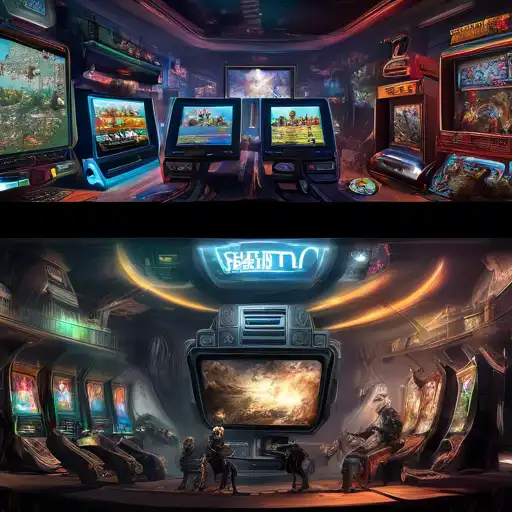The Revolutionary Journey of Gaming Technology in Modern Entertainment
Gaming technology has undergone a remarkable evolution over the past few decades, transforming from simple pixelated screens to immersive virtual realities. This journey has not only redefined entertainment but also how we interact with digital worlds. In this article, we explore the milestones of gaming technology and its impact on modern entertainment.
The Early Days of Gaming
The inception of gaming technology can be traced back to the 1970s with the introduction of arcade games like Pong and Space Invaders. These games, though simple by today's standards, laid the foundation for the gaming industry. They introduced the concept of interactive entertainment, captivating audiences worldwide.
The Rise of Home Consoles
With the advent of home consoles in the 1980s and 1990s, gaming became more accessible. Companies like Nintendo, Sega, and later Sony and Microsoft, revolutionized the market with consoles that offered richer graphics and more complex gameplay. This era marked the beginning of gaming as a mainstream form of entertainment.
The Digital Revolution
The turn of the millennium saw the digital revolution take gaming to new heights. Online multiplayer games and digital distribution platforms like Steam changed how games were played and distributed. This period also saw the rise of mobile gaming, making games accessible to a broader audience than ever before.
The Era of Immersive Technologies
Today, gaming technology is pushing the boundaries with virtual reality (VR) and augmented reality (AR). These technologies offer unprecedented levels of immersion, blurring the lines between the virtual and real worlds. Games like Pokémon GO and Half-Life: Alyx showcase the potential of these technologies to create engaging and interactive experiences.
The Future of Gaming Technology
As we look to the future, advancements in artificial intelligence (AI), cloud gaming, and 5G technology promise to further revolutionize the gaming industry. These technologies will enable more realistic and interactive gaming experiences, making the future of gaming technology an exciting prospect.
Gaming technology has come a long way from its humble beginnings. It has not only evolved as a form of entertainment but also as a cultural phenomenon that connects people across the globe. As technology continues to advance, the possibilities for gaming are limitless, promising even more innovative and immersive experiences in the years to come.
